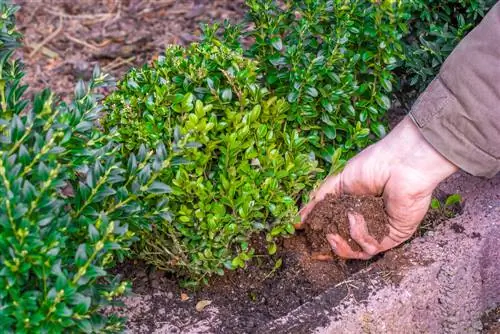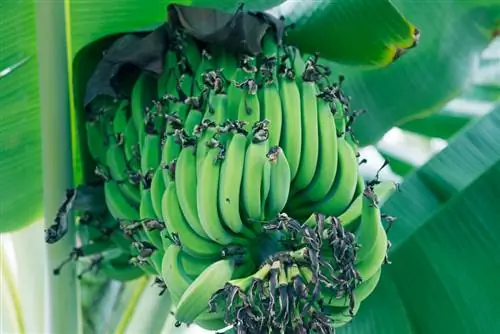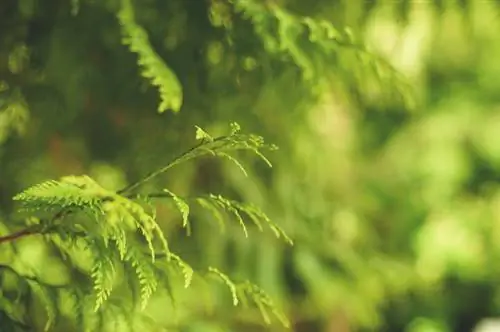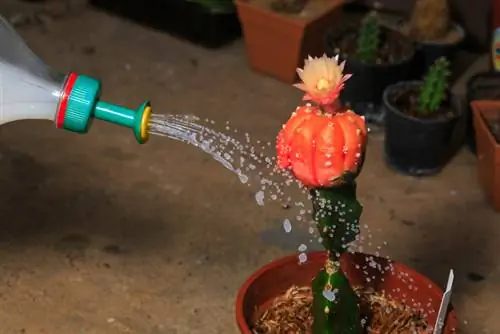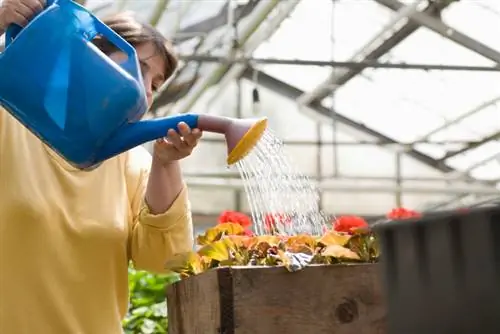- Author admin leonars@hobbygardeners.com.
- Public 2023-12-16 16:46.
- Last modified 2025-01-23 11:21.
Nutrients ensure that your hedge grows he althily. The timing of fertilization and the choice of the right fertilizer are crucial for plant he alth.
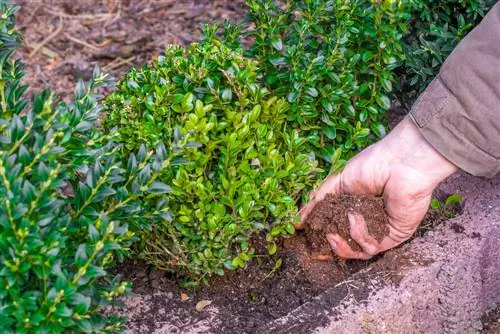
When and how should you fertilize hedges?
Fertilizing hedges should be done during the growing season from March to August, with organic fertilizer such as compost, horn meal (€69.00 on Amazon) or horn shavings. Avoid fertilizing in the fall as this can result in under-ripened wood and susceptibility to frost.
Hedges need nutrients
Hedges develop extensive roots in order to draw as many nutrients as possible from the soil. Adding fertilizer supports the growth of young plants. When fertilizing, you need to be careful because too many nutrients damage the plants. There is a high risk with mineral fertilizers. The s alts it contains remove fluid from the roots, causing the plants to dry out and die.
These nutrients are important
The shrubs need carbon dioxide to develop glucose during photosynthesis. Nitrogen is important in the formation of proteins. Plants use this nutrient to produce chlorophyll. Phosphorus is essential for he althy plant growth. As a structural element, it ensures energy transfer together with other substances.
Potassium protects the organism from external influences. It makes the plant resilient and reduces diseases. In addition to these nutrients, the roots need oxygen and a number of trace elements. The water transports the nutrients in the plant's channels and brings them to the respective locations.
Time for fertilization
Fertilize your hedges during the growing season between March and August when the plant needs nutrients for growth. The ideal time is when the plants sprout. You should avoid fertilizing in the fall. The late availability of nutrients causes the hedge to sprout again. The wood does not fully mature. It remains soft and is therefore susceptible to frost.
Organic fertilizers
Compost, horn meal (€69.00 on Amazon) or horn shavings and organic complete fertilizers from the shops are suitable as organic fertilizers. Compost improves the soil because it has a positive effect on the air and water balance and on its structure. Not every plant tolerates compost fertilization, as this slightly increases the pH value of the soil. You should not fertilize rhododendrons with compost.
Horn meal and horn shavings are of animal origin. Horn meal is finer than horn shavings and takes effect more quickly. This fertilization mainly supplies the hedges with nitrogen and phosphate. Since the products only decompose slowly in the soil, a long-term supply of nutrients is guaranteed. Fertilize your hedges in autumn so that the substances can dissolve in the soil.
Organic complete fertilizers have these advantages:
- long-term and sustainable effect
- tailored to the individual needs of different species
- ideal combination of organic substances
Mineral fertilizers
Blue grain is a mineral fertilizer rich in nitrate, phosphate and potassium. While original compositions were not very environmentally friendly, new formulations have a lower impact on the environment. Magnesium sulfate is also known as Epsom s alt. It is suitable as a root fertilizer and, if the leaves are deficient, also as a foliar fertilizer. Potassium fertilizers are mainly used on ornamental trees. Evergreen plants benefit from potassium fertilization before winter, which acts as a natural frost protection.

